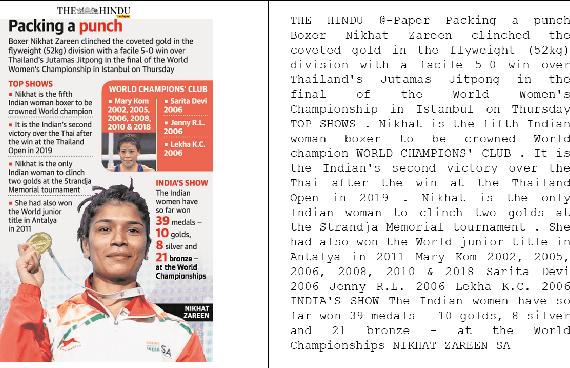Towards Optimizing OCR for Accessibility
Paper and Code
Jun 24, 2022



Visual cues such as structure, emphasis, and icons play an important role in efficient information foraging by sighted individuals and make for a pleasurable reading experience. Blind, low-vision and other print-disabled individuals miss out on these cues since current OCR and text-to-speech software ignore them, resulting in a tedious reading experience. We identify four semantic goals for an enjoyable listening experience, and identify syntactic visual cues that help make progress towards these goals. Empirically, we find that preserving even one or two visual cues in aural form significantly enhances the experience for listening to print content.
* Extended Abstract for Poster Session at Accessibility, Vision, and
Autonomy Meet (CVPR 2022 Workshop)
 Add to Chrome
Add to Chrome Add to Firefox
Add to Firefox Add to Edge
Add to Edge